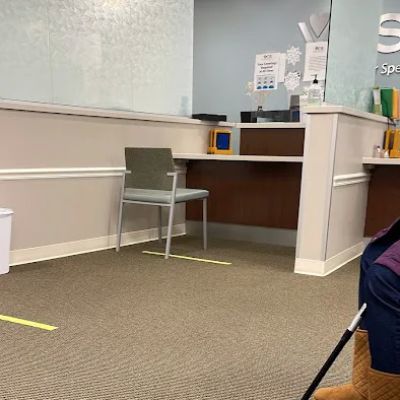- 1-Understanding-the-Link-Between-Heart-Disease-and-Depression
- 2-How-Depression-Affects-Heart-Health
- 3-Biological-Mechanisms-Connecting-Heart-Disease-and-Depression
- 4-Real-Life-Stories-Showing-Heart-Disease-Depression-Link
- 5-Managing-Depression-to-Improve-Cardiac-Outcomes
- 6-Professional-Support-and-Resources-for-Patients
1. Understanding the Link Between Heart Disease and Depression
The connection between heart disease and depression is well-documented yet often underappreciated. Depression is not just a mental health issue; it has profound effects on physical health, particularly cardiovascular well-being. Studies indicate that people living with heart disease are significantly more likely to experience depression compared to the general population, and vice versa. This bidirectional relationship creates a challenging cycle that can complicate treatment and recovery.
Recognizing the heart disease and depression link is critical because untreated depression can worsen heart disease outcomes, leading to increased hospitalizations, poor medication adherence, and even higher mortality rates. This understanding opens the door for integrated approaches in healthcare that address both mental and cardiac health simultaneously.

2. How Depression Affects Heart Health
Depression influences heart health through behavioral and physiological pathways. People suffering from depression often engage in unhealthy habits such as poor diet, smoking, and physical inactivity, which are known risk factors for heart disease. Furthermore, depression can reduce motivation to follow treatment plans or attend medical appointments, impairing overall cardiac care.
Physiologically, depression triggers increased stress hormone levels like cortisol, which elevate blood pressure and promote inflammation—key contributors to atherosclerosis and other cardiovascular conditions. This dual impact makes depression a significant factor in worsening heart disease progression.
Atlanta Heart Specialists
atlanta heart specialists
4375 Johns Creek Pkwy #350, Suwanee, GA 30024, USA

3. Biological Mechanisms Connecting Heart Disease and Depression
The biological interplay between heart disease and depression involves several mechanisms. Chronic inflammation, autonomic nervous system imbalance, and platelet aggregation all appear elevated in individuals experiencing both conditions. These biological changes accelerate plaque buildup in arteries and increase the likelihood of clot formation, which can lead to heart attacks or strokes.
Additionally, depression-related disruptions in sleep and circadian rhythms further compound cardiovascular risks. Researchers are continually uncovering how neurotransmitter imbalances in depression also influence vascular health, making the relationship complex and multifaceted.
4. Real-Life Stories Showing the Heart Disease and Depression Link
Take the case of Michael, a 60-year-old man recovering from a heart attack who developed severe depression during rehabilitation. His initial reluctance to engage in cardiac rehab and inconsistent medication use highlighted how depression complicated his heart recovery. After receiving integrated care that included psychological counseling and cardiac treatment, Michael’s outlook and health markedly improved.
Such stories emphasize the need for awareness and proactive management of mental health in cardiac patients. Public health campaigns increasingly stress this connection, encouraging patients to seek help early.
5. Managing Depression to Improve Cardiac Outcomes
Effective management of depression can positively influence heart disease outcomes. Treatment options include psychotherapy, medication, lifestyle changes, and social support. Cognitive Behavioral Therapy (CBT) has shown promising results in improving mood and encouraging healthier behaviors in cardiac patients.
Antidepressants may be prescribed carefully considering potential cardiac side effects, and lifestyle interventions such as regular physical activity and stress reduction techniques are highly encouraged. Family involvement and peer support groups also contribute to sustained mental and cardiac health.
These approaches help break the detrimental cycle between heart disease and depression, improving quality of life and longevity.
6. Professional Support and Resources for Patients
For individuals grappling with heart disease and depression, professional support is invaluable. Cardiologists, psychiatrists, and primary care physicians can collaborate to create personalized treatment plans that address both conditions. Regular screening for depression in cardiac patients is increasingly becoming standard practice.
Patients seeking trusted resources, effective treatment options, or specialized products to aid in their recovery journey can visit HeartCare Hub. This platform offers comprehensive information and connections to services designed to support heart and mental health integration.
Understanding and addressing the heart disease and depression link empowers patients to take proactive steps toward holistic healing and improved well-being.





















Deborah Heart and Lung Center
deborah heart and lung center
200 Trenton Rd, Browns Mills, NJ 08015, USA